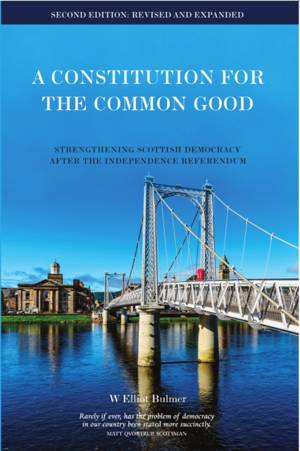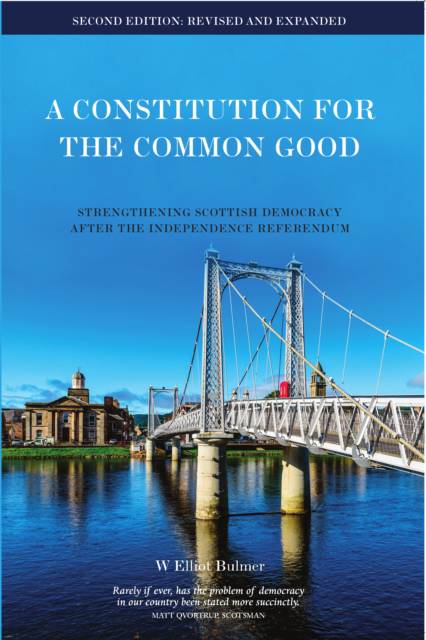
- Retrait gratuit dans votre magasin Club
- 7.000.000 titres dans notre catalogue
- Payer en toute sécurité
- Toujours un magasin près de chez vous
- Retrait gratuit dans votre magasin Club
- 7.000.0000 titres dans notre catalogue
- Payer en toute sécurité
- Toujours un magasin près de chez vous
A Constitution for the Common Good
Strengthening Scottish Democracy After the Independence Referendum
W Elliot BulmerDescription
Nearly every democracy in the world is built upon a written constitution, and constitutions have been at the core of citizens' demands for better governance in places as disparate as Kenya, Tunisia and Ukraine. In light of developments following the independence referendum and the 2015 general election, constitutional change looks certain to remain central to the political agenda in Scotland for some time to come, and has entered the debate UK wide through calls for a federal system and David Cameron's promise of English Votes for English Laws.
But what is a constitution for? Is it a defensive charter to protect the basic structures of democratic government, or is it a transformative covenant for a better society? How can the constitution sustain democracy and promote ethical politics while at the same time recognizing and accommodating differences in society? What difference would a good constitution make to the poor?
In addressing these questions, this book sets out a vision for how Scotland could reconstitute itself. It emphasises the connection between the constitution, democracy and the common good, arguing that democratic self-government is the true prize, regardless of the relationship of Scotland to the rest of the UK.
This book not only makes a vital contribution to Scotland's current and on-going constitutional debate, a debate that still rages despite the referendum result, but also engages with fundamental questions of constitutionalism and democracy that are of enduring relevance to both citizens and scholars around the world.
Spécifications
Parties prenantes
- Auteur(s) :
- Editeur:
Contenu
- Nombre de pages :
- 336
- Langue:
- Anglais
- Collection :
Caractéristiques
- EAN:
- 9781910021743
- Date de parution :
- 30-04-17
- Format:
- Livre broché
- Format numérique:
- Trade paperback (VS)
- Dimensions :
- 155 mm x 231 mm
- Poids :
- 521 g







